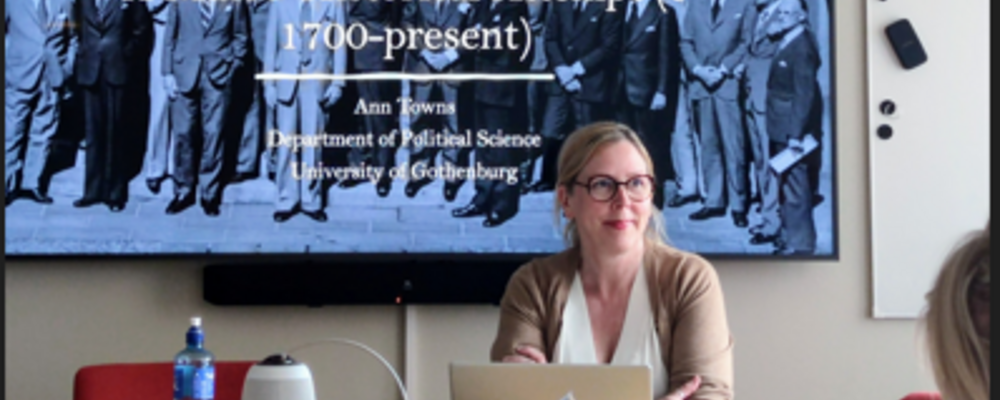
Seminars, conferences & workshops
The GenDip program organizes specialized seminars with researchers and conferences/workshops on the theme of gender and diplomacy.
Previous seminars and events organized by GenDip
2024
August Danielson, Associate Research Fellow at the Swedish Institute of International Affairs, The Role of Reflection in International Practice Theory, co-organized with International Politics (IP)
Naoko Shimazu, Professor at The University of Tokyo, Tokyo College, The Female Gaze in Global Diplomacy: Photographing the Bandung Conference of 1955
Malena Rosén Sundström, Associate Professor at the Department of Political Science, Lund University, Normative leadership lost? Gender Equality in EU Council Diplomacy and the Rescinding of Sweden’s Feminist Foreign Policy
Karen E Smith, Professor of International Relations at the London School of Economics and Political Science: "Women in Multilateral Diplomacy: Obstacles and Opportunities", co-organized with International Politics (IP)
Isabel Bramsen, Associate Professor at Lund University: "The micro-sociology of gender, peace and conflict", co-organized with International Politics (IP)
2023
Isabelle Karlsson, PhD Candidate at the Department of Strategic Communication, Lund University: "Enacting Sweden’s feminist foreign policy in public diplomacy: a communication perspective"
Jelena Subotic, Professor at the Department of Political Science, Georgia State University: "Objects of Status: The International Politics of Art Restitution" (co-convened with SGS)
Emil Edenborg, PhD of Political Science and Associate Professor of Gender Studies, University of Stockholm: "Governing LGBTI rights: A queer IR analysis of how issues of sexual orientation and gender identity are addressed in international development aid"
Panel discussion on the dismantlement of the Swedish feminist foreign policy
Douglas Victor Janoff, PhD, Global Consultant, Strategic Advisor and Learning Specialist, Human Rights and Diplomatic Affairs, Ottawa: "Queer Diplomacy - Homophobia, International Relations and LGBT Human Rights"
2022
Cynthia Holden Enloe, Professor, feminist writer and theorist: "Gender and Militarism in Light of Russia's Invasion of Ukraine" (co-hosted with IP. Watch the recording below!)
Merje Kuus, Professor at the Department of Geography, University of British Columbia: "How do we know what diplomats know?: Interpretation and narrative in the study of transnational expertise"
Nadia Kaneva, Associate Professor at the Department of Media, Film, and Journalism Studies: "Gender Trouble in Public Diplomacy and Nation Branding: An Invitation to Rethink the Future of the Field"
Guest seminar with Cynthia Holden Enloe
Cynthia Holden Enloe is a feminist writer, theorist, and professor. She is best known for her work on gender and militarism and for her contributions to the field of feminist international relations. She has also had major impact on the field of feminist political geography, in particular feminist geopolitics.
On March 7, 2022, Cynthia was a guest at the department's IP seminar co-arranged with GenDip. She lectured on "Gender and Militarism in Light of Russia's Invasion of Ukraine". Watch the recording of her lecture to the right.